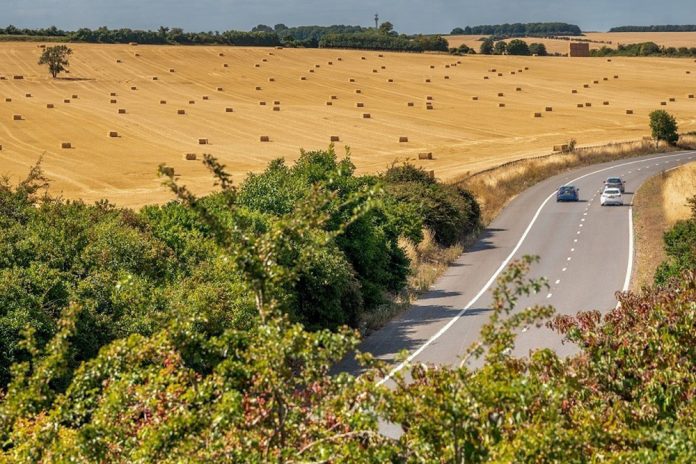National Highways is appealing to landowners and organisations to help plant an additional 3 million trees by 2030.
The government-owned organisation only has enough room for less than 10% – or roughly 300,000 trees – across its estate.
So it’s donating up to 600,000 trees annually, all from its supply of native trees from a variety of species.
National Highways will be taking applications on a continual basis through to the last planting season in 2028/2029.
Stephen Elderkin, Director of Environmental Sustainability for National Highways, said: “The positive impacts of trees and green spaces on the environment are significant, which is why I am proud to be planting 3 million trees across England – but we need your help.
This is a fantastic opportunity for landowners and organisations to help us fight the impact of climate change, which we can no longer afford to be indifferent or complacent about as well as boosting nature by providing valuable habitats for wildlife.
“That’s why we’re doing all we can to tackle the ecological problems we face by investing in vital projects like these to improve our road network.”
Sara Lom, CEO of the Tree Council, said: “Fifty years after the ‘Plant a Tree in ‘73’ campaign, the Tree Council is delighted to see National Highways launching new ways of establishing trees in the landscape in partnership with charity and volunteer groups.
“Britain urgently needs more trees to tackle the climate and biodiversity emergencies and we all need to work together to achieve this.”
National Highways recently awarded nearly £3 million to a West Sussex nursery Greenwood Plants to secure its future pipeline of young native trees by buying and growing its own stocks.
Greenwood Plants, near Arundel, is one of the UK’s largest growers for the commercial sector. Starting in Autumn 2024, it will help grow millions of native trees from seed over a five-year period.
Native species, including Holly, Scots Pine, Oak, Rowan and Beech, will be grown peat-free at West Sussex and Cheshire nurseries. Trees have been chosen to provide seasonal interest through the year and blend well with surrounding natural environments.
Most trees will be supplied as two-year-old whips with exposed roots (no soil attached). These ‘bareroot whips are easier to transport and quicker to plant and establish, with planting between November and March.
National Highways is also running a nature-based flood management pilot, working with 13 landowners across three Yorkshire and North West catchment areas.
While currently in the evaluation phase, indications are that tree planting, together with leaky dams, ponds and ditches can reduce the flow of water around their network.
Not only does this reduce flood risk, but it can benefit nature and sequester carbon.
National Highways is also working with other partner environmental organisations, such as the Wildlife Trusts, and estimates their funding has already helped plant hundreds of thousands of trees.



